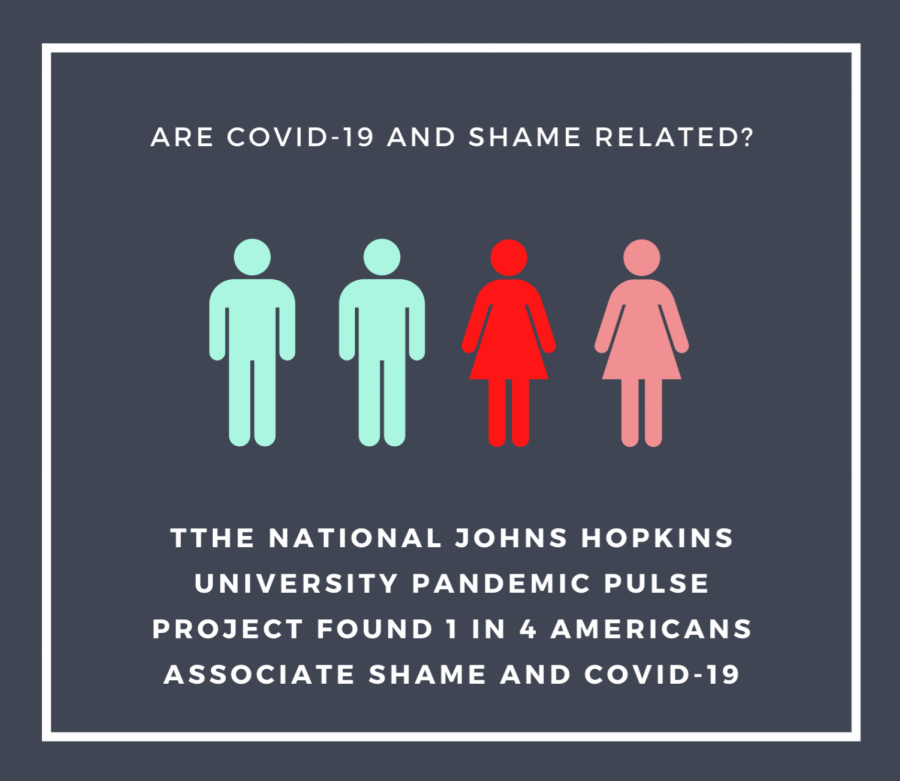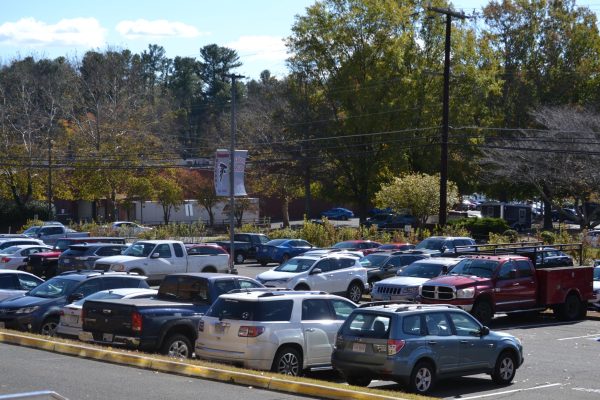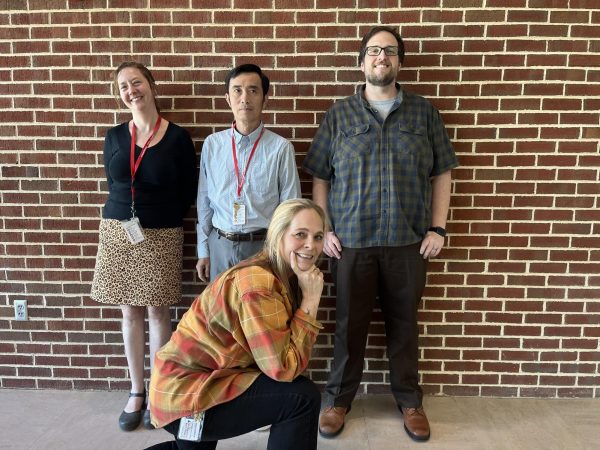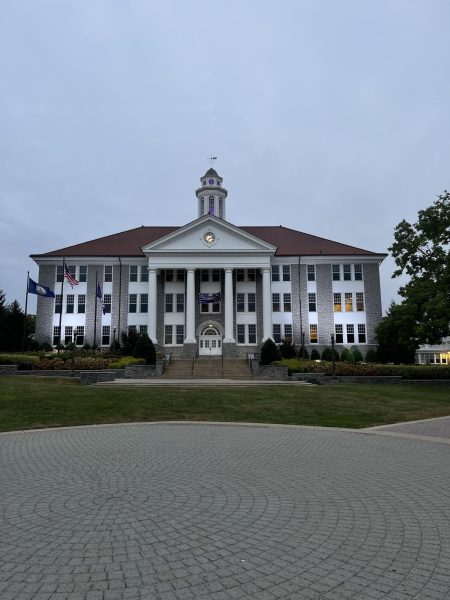Shame Clouds COVID-19
made in Canva by Catherine Smith
The pandemic has caused shame about contracting COVID-19, making it hard to seek help and tell loved ones.
As the COVID-19 pandemic is still infecting many people a day there are various emotions concerning this worldwide crisis. The National Johns Hopkins University Pandemic Pulse Project found that one in four Americans associate shame with COVID-19.
Comparatively to the Midwest and West, individuals in the South are more “readily agreed” to the idea that people who get COVID-19 should be ashamed, according to VeryWell Health. “People think if you have COVID[-19] you aren’t doing what you should’ve been doing,” said junior Maddy Cadle. Johns Hopkins reported that 42 percent of the population agreed with the statement “People who get COVID-19 behaved irresponsibly.”
Junior Alyssa Owens, who contracted COVID-19 two weeks from a family member before Spring Break said, “At first there was a little bit of shame because I didn’t know how people were going to react when I came back to school.” Senior Carleigh Graham felt ashamed because “I exposed a lot of people just because of being in school which made me feel terrible, but that’s obviously not something I could necessarily control.”
Johns Hopkins University suggests that COVID-19 is not the first virus to have shame associated with it, but COVID-19 is world wide. “When someone would come to school with a cold in the past people would say ‘Get away from me!’ or ‘Ew your sick!’ and I feel like it’s the same for covid. Being sick isn’t a huge deal but people blow it up and make it this huge thing like they have with COVID[-19],” said Graham.
VeryWell Health suggests that guilt may keep people from breaking COVID-19 rules, but guilt from contracting COVID-19 is not always justified because contraction is easy. “I feel bad when people talk badly about people getting COVID[-19], I tried my hardest not to get it but I still did,” said Caddle.
The Project suggests that universal messaging is the key to stop stigmas; if everyone knows how the virus works, how to prevent it and how essential workers are exposed, they will not stigmatize others who contracted the virus.
Thanks for reading The Falconer. We're happy to provide you with award-winning student journalism since 1963, free from bias, conflicts of interest, and paywalls. We're able to continue with the generous support of our local community. If you're able, please consider making a donation. Any amount is incredibly helpful and allows us to pursue new and exciting opportunities.
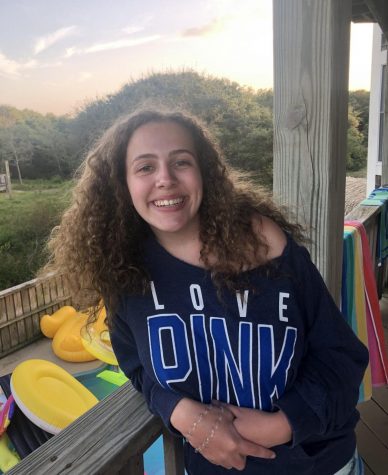
Hello, I am Helene Burch! I am a senior, this is my first year working with the Falconer, and I am the News Editor. I have always loved writing, so during...

